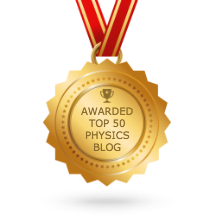Physics is changing the way medicine is practised. While a doctor will still use a stethoscope, a diagnosis now often requires devices that make use of sophisticated physics and engineering. The importance of physics in medicine may be best displayed when a physicist needs to visit their doctor: we seem to be the only people who can intimidate doctors as we are the ones who actually know how their devices work. As a consequence of the technological evolution of the discipline, medical schools are admitting more and more students who major in physics or engineering.
Almost all major engineering schools will now have a department of biomedical engineering. There are numerous opportunities in academia in medical physics and biomedical engineering. Students interested in becoming an academic physicist now have a fast-growing field to aim for, a field that is providing more and more opportunities. The industrial sector in biomedical engineering is also advancing and evolving quickly. Physicists and engineers can find numerous and lucrative opportunities with companies.
With all of these opportunities it is no wonder that undergraduates are very interested in knowing more about medical physics. Partly due to student interest, and partly due to the faculty’s desire to provide interesting physics classes, Carleton College offered an intermediate level course in medical physics. This was a course open to students who have completed the first year physics courses. We deliberately designed the medical physics course so that the curriculum would be advanced, thereby negating the possibility that this course alone would satisfy a pre-medical school requirement. At this level we then attracted physics majors and pre-medical students who had a genuine interest in studying more physics.
Friday, April 11, 2008
Even More on "Medical Physics: the Perfect Intermediate Level Physics Class"
In 2001, Nelson Christensen of Carleton College published an article in the European Journal of Physics (Volume 22, Pages 421–427) titled “Medical Physics: The Perfect Intermediate Level Physics Class.” (See the Jan 25, 2008 and the Oct 5, 2007 blog entries for my earlier discussions about this paper.) The primary textbook for the class was the 3rd edition of Intermediate Physics for Medicine and Biology. Below is the introduction to his paper.
Subscribe to:
Post Comments (Atom)



No comments:
Post a Comment